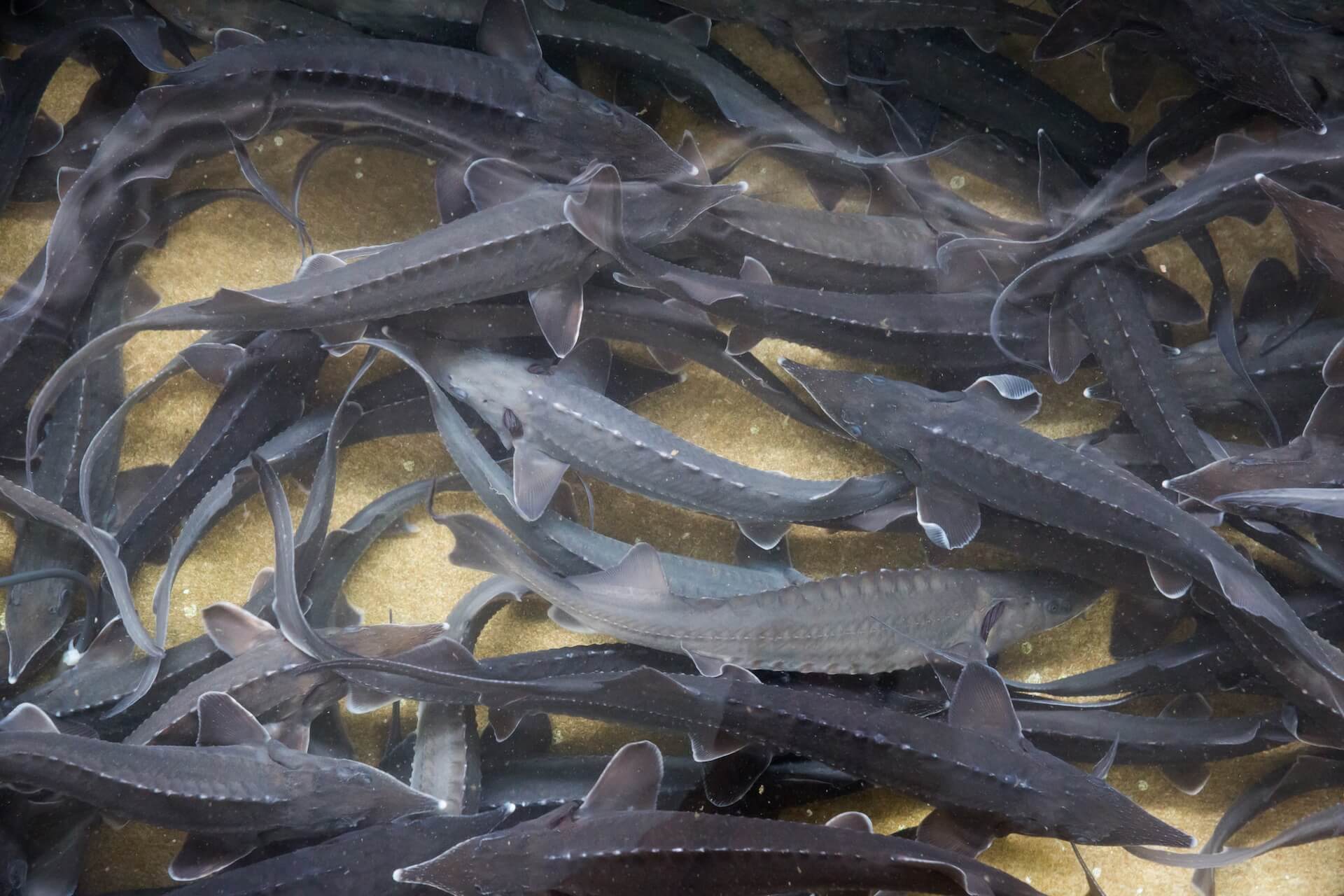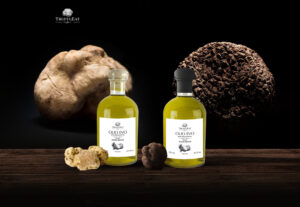
Caviar is a luxurious delicacy that can be made from sturgeon eggs. Traditionally speaking, this kind of caviar isn’t kosher, and you can’t help but wonder: ”Do sturgeon have scales?” This is important because there were many arguments about whether sturgeon is or isn’t kosher. Let’s find it out.
Sturgeons have bony scutes on their body, which are modified scales. So, many people would say that sturgeon have scales, but on the other hand, many consider sturgeon caviar kosher, meaning the fish don’t have scales. However, with scales or not, eggs from this fish have to be under Rabbinical supervision in order to be considered kosher.

Keep reading if you wish to find more information about sturgeon and caviar made from this species.
Do Sturgeon Have Scales?
Sturgeons don’t have scales as other fish do. In fact, their scales have mutated into scutes. Scutes are modified ganoid scales, and sturgeon have five rows of scutes along the body. These scutes are diamond shaped and can be found on bony fish species like sturgeon.
The reason why these scales have mutated is quite simple – they now serve as a shield and protection from other predators. That’s why these scutes can be quite sharp. However, besides its armor, it’s also what makes sturgeon different from other fish.

Why It’s Important to Know This Fact and How It Affects Caviar?
Knowing whether sturgeon’s caviar is kosher or not will affect most Jewish people. Traditionally, eating fish that have scales isn’t according to the Torah. But, as you can see, not all fish have scales. Also, Torah accepts fish with easily removable scales.
Is Sturgeon Caviar Kosher?
So, to summarize, Jewish religious laws accept fish and their product only if the fish has scales and fins. That’s why beluga isn’t kosher. But what about sturgeon caviar, and does caviar need a Hechsher? The answer to the first question is no, but yes for the second one. The true sturgeon, in fact, doesn’t have real scales, so it practically doesn’t pass the Jewish dietary laws, which must be respected. As a result, the traditional sturgeon caviar shouldn’t have Hechsher certification.
Check the table below and check what fish is kosher and what’s not.
| Fish | Kosher |
| Beluga | No |
| Whitefish | Yes |
| Sevruga | No |
| Herrings | Yes |
| Sculpins | Yes |
| Tilapia | Yes |
Which Fish Is Kosher?
Kosher fish, as you can see, have tight regulations. The only way to be certain is to purchase fish from physical stores or buy caviar online under Rabbinical supervision. Put it like this – it’s pretty easy to answer which fish is kosher. After all, if the fish is kosher, then its eggs should be too.
However, it can get quite tricky if you run into other fish other than in the table above, right? For example, is capelin caviar kosher? Good news! Capelin fish have scales and fins. You can also eat the following fish without a worry on your mind:
- Haddock,
- Tuna,
- Sea bass,
- Salmon,
- Halibut,
- Mackerel,
- Cod.
However, before you purchase a delicacy like caviar, make sure that the product container is marked with acceptable kosher certification.
Black and Golden Whitefish Caviar
Roe from Black Whitefish is related to salmon roe. This fish lays tiny, crunchy golden eggs that, after processing, turn black. This roe is slightly sweet with a little zingy flavor. It can be a great substitute for caviar and is affordable enough for anyone’s budget. It is also frequently used as a garnish, and because it is among the less expensive options, it may be incorporated into a regular healthy diet.
When it comes to the Golden Whitefish caviar, it’s interesting that although the roe from this species has to be processed, it still retains its golden color. It is also reasonably priced and great for everyday caviar recipes or for catering businesses.
Bottarga Caviar
This caviar is from the Mediterranean area, and it’s from gray mullet fish. The word “bottarga” is an Italian term for cured, salted fish roe. Although it is frequently referred to as “poor man caviar,” it is anything but that. After being sun-dried, it is formed into a sausage-like shape, and as you might have guessed, it works well in omelets or pasta. If you’re a caviar beginner, there’s also tuna roe bottarga to be found on the market.

Find the Best Kosher Caviar and Enjoy
Unfortunately, sturgeon caviar isn’t kosher, which means products from sevruga, kaluga, or ossetra sturgeon shouldn’t be consumed if you’re eating only the food that’s passed Rabbinical supervision. The good news is that many other amazing caviar variants are kosher and will be a great substitute for sturgeon caviar.

